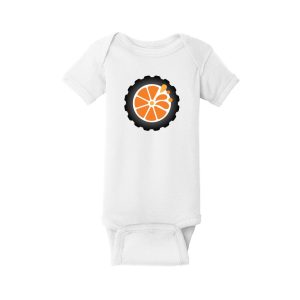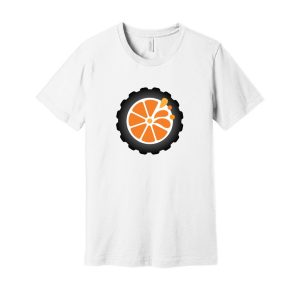What is a hub assembly and how do they work?
Baker Performance / Automotive Terms / What is a hub assembly and how do they work?-
 Orange Autos Splash - Tire Unisex Champion Hoodie$34.30 – $37.73
Orange Autos Splash - Tire Unisex Champion Hoodie$34.30 – $37.73 -
 Orange Autos Splash Tire - Infant Baby Rib Bodysuit$12.17 – $13.29
Orange Autos Splash Tire - Infant Baby Rib Bodysuit$12.17 – $13.29 -
 Orange Autos Splash Tire - Women's Crop Hoodie$22.75 – $23.10
Orange Autos Splash Tire - Women's Crop Hoodie$22.75 – $23.10 -
 Orange Autos Splash Tire - Unisex Jersey Tee$12.46 – $19.17
Orange Autos Splash Tire - Unisex Jersey Tee$12.46 – $19.17
Automotive Glossary
Drilled and slotted rotors are a great choice for tow vehicles and trucks with heavy loads. The heavier your vehicle is, the more energy it takes to come stop safely so these types of brake rotor will help release that extra force from slowing down quickly without causing any damage or issues.
If you live in an area with a lot of rain or snow, then these types of rotors are also a good idea to help keep your brakes working properly and keeping you safe on the roads. Another thing to consider is that if you do a lot of driving in mountainous regions, having drilled and slotted rotors can give you better brake performance and help you avoid any potential accidents.
There are many factors to consider when choosing the right brake rotors for your vehicle and driving habits, but drilled and slotted rotors are definitely a great option for many drivers. Thanks for reading! Drive safe!
Do you have questions about brakes or brake maintenance? Submit them!
A brake dust shield is an important car part that helps protect your vehicle's braking system. This shield prevents brake dust and other debris from getting into the system, which can cause damage and reduce the life of your brakes.
Brake dust shields are usually made of metal or plastic and are attached to the brake caliper. They come in different sizes and shapes, so it's important to choose one that fits your vehicle properly.
If you're not sure what size or type of brake dust shield you need, consult a professional mechanic or automotive parts store for help. Installing a brake dust shield is usually a simple process, but it's always best to follow the manufacturer's instructions to ensure proper installation.
Have you ever had to replace your brake dust shield? What tips do you have for others who may be doing this for the first time? Let us know in the comments below!
When it comes to brakes, there are two main types: disc brakes and drum brakes.
Drum brakes have a wheel cylinder that pushes brake shoes against the drums. The shoes press against the drums, which in turn slows down or stops the vehicle.
Drum brakes have been around for a long time, and were once the most popular type of brake. However, in recent years, disc brakes have become more common due to their superior performance. In this blog post, we will discuss the differences between drum brakes and disc brakes. We will also talk about the pros and cons of each type of brake.
Disc brakes work by using a caliper to squeeze a brake pad against a rotating disc, or rotor. The friction between the pad and the rotor slows down the wheel. Drum brakes work in a similar fashion, but instead of a rotor, they have a drum. The brake pads are mounted on the inside of the drum, and when the brakes are applied, the pads squeeze against the drum and slow down the wheel.
Disc brakes are more effective than drum brakes for a few reasons. First, they have better cooling because the air can flow more freely around the rotor. This helps to prevent brake fade, which is when the brakes start to become less effective after extended use. Drum brakes can also suffer from brake fade, but it is more common with disc brakes.
Disc brakes also have shorter stopping distances than drum brakes. This is because the pads can grip the rotor more effectively, and the force is applied directly to the wheel. Drum brakes apply the force to the shoes, which then push against the drum. This can cause the shoes to slip, which reduces the braking force.
Disc brakes are also less likely to cause skidding because the force is applied directly to the wheel. When a drum brake fails, it can cause the shoe to lock up against the drum, which can cause the wheel to skid. Disc brakes are less likely to fail in this way because the caliper can release the pressure on the pads if it senses that the wheel is skidding.
Disc brakes do have some disadvantages, however. They are more expensive than drum brakes, and they require more maintenance. The pads and rotors will wear out over time and will need to be replaced. Disc brakes also tend to make more noise than drum brakes.
If you are looking for a new set of brakes, disc brakes are the way to go. They offer superior performance and safety, and they will last longer than drum brakes. However, if you are on a budget, drum brakes may be a better option for you. Whichever type of brake you choose, make sure to have it serviced regularly to ensure optimal performance.
Do you have any experience with disc brakes or drum brakes? Let us know in the comments!

